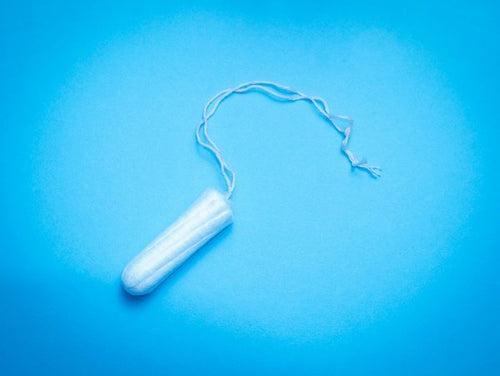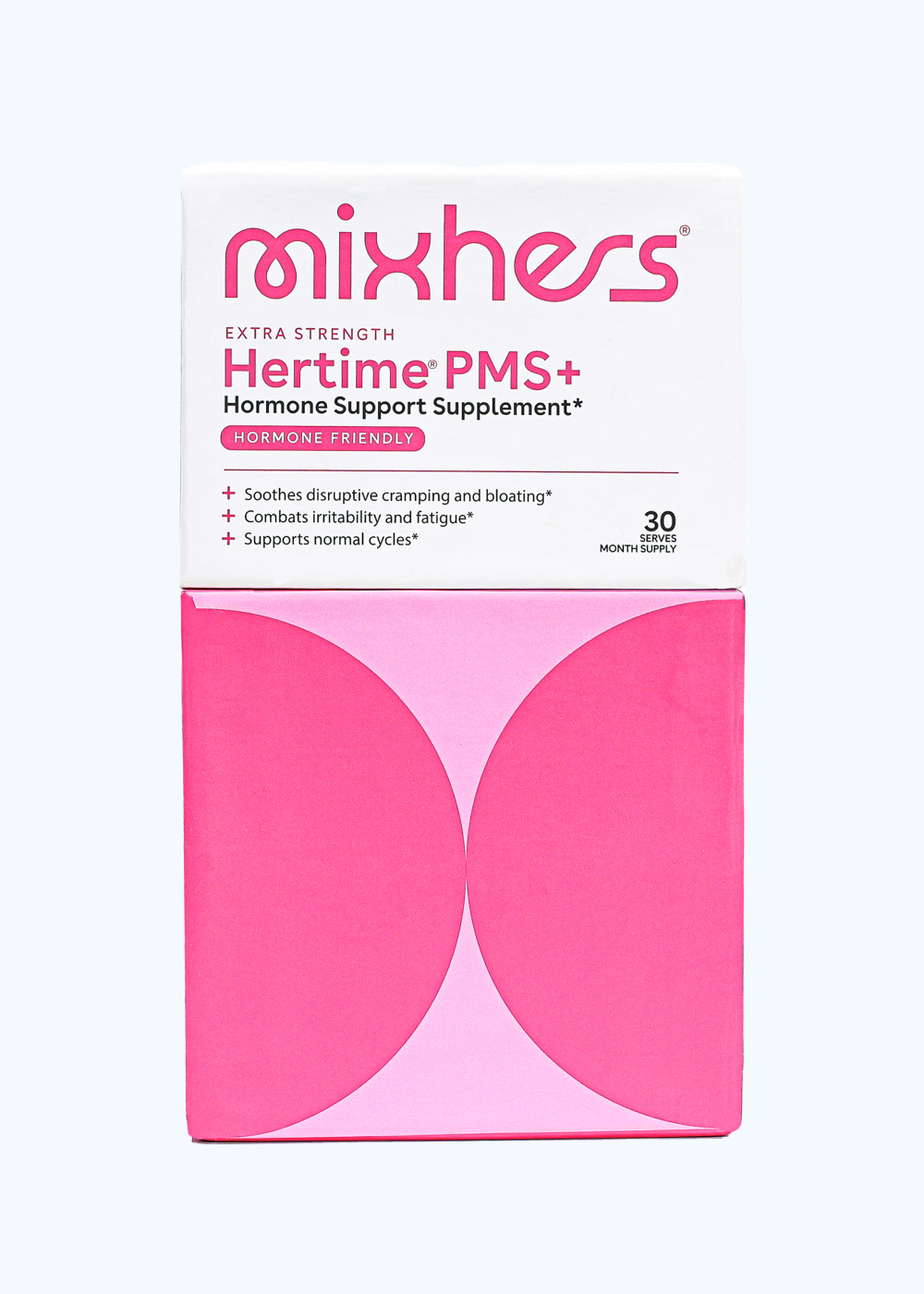Hormones continue to play a significant role in a woman's life during her twenties and thirties. Hormonal fluctuations during these years can contribute to mood swings, fatigue, weight gain, irregular periods, and skin issues. Not every hormonal change is negative, however. For example, during ovulation, our estrogen levels rise, which can boost our confidence and motivation.
On the other hand, during the premenstrual phase, our progesterone levels increase, which can cause mood swings and irritability. Hormonal imbalances can lead to irregular or heavy periods, which can cause discomfort and impact a woman's quality of life.
Estrogen and testosterone can affect the production of oil and sebum, leading to skin issues such as acne, dryness, or sensitivity. Unfortunately, zits and pimples are not just a rite of passage for adolescents. Many adult women still struggle with blemishes. Acne can be particularly distressing and can impact our self-esteem and confidence. Skin dryness and sensitivity can also cause discomfort and lead to an uneven complexion. Hormonal changes can contribute to other skin issues such as hyperpigmentation or melasma.
Hormones can have a significant impact on a woman's mood and mental health during her twenties and thirties. Fluctuations in hormone levels can contribute to mood swings, anxiety, and depression. These mood changes can be particularly challenging to manage during stressful periods such as exams, work deadlines, or relationship issues.
Hormonal imbalances can also lead to sleep disturbances. Researchers are discovering fascinating connections not only between a woman’s sleep and her quality of life, but also her perception of her sleep and her quality of life. One study reported that “although young women report significantly more sleep problems than men, this perception of a poorer sleep quality in women is not reflected in objective polysomnographic measures, suggesting that other non-sleep-related conditions such as mood disorders play an important role.” Women who experience monthly hormonal shifts associated with menstruation may find that the corresponding changes to their mood influences how they interpret the quality of their sleep.
Now, let's talk about the darling pink or blue elephant in the room — motherhood. Becoming a mom can be incredibly rewarding, but it can also be physically and emotionally challenging.
Hormones can have a significant impact on a woman's life during different stages, including when trying to conceive. Hormones such as estrogen, progesterone, and luteinizing hormone play a crucial role in ovulation and the menstrual cycle. Hormonal imbalances can lead to irregular or absent periods, which can impact a woman's fertility. For too many women, hormonal imbalances can also lead to conditions such as polycystic ovary syndrome (PCOS), which can affect ovulation and fertility.
During pregnancy, hormones play a vital role in supporting the growth and development of the fetus. These hormones are essential for maintaining a healthy pregnancy, but they can also cause some unpleasant side effects, such as morning sickness, fatigue, and mood swings.
Hormones such as human chorionic gonadotropin (hCG), estrogen, and progesterone support the growth of the placenta, which provides oxygen and nutrients to the fetus. Hormonal imbalances during pregnancy can lead to complications such as preeclampsia, gestational diabetes, or preterm labor. Monitoring hormone levels during pregnancy is essential for ensuring a healthy pregnancy and a healthy baby.
After delivery, a woman's body undergoes significant hormonal changes during the baby's first year of life. Hormones such as prolactin and oxytocin play a crucial role in milk production and breastfeeding. Hormonal imbalances during this period can lead to breastfeeding issues such as low milk supply or mastitis. Hormonal changes can also contribute to postpartum depression, a condition that affects many new mothers. Hormonal imbalances can also contribute to issues such as hair loss, fatigue, and sleep disturbances. It's essential for women to receive proper postpartum care and support to manage these changes and ensure a healthy recovery.
After giving birth, a woman's hormones continue to fluctuate as her body adjusts to postpartum life. The drop in estrogen and progesterone can cause mood swings, anxiety, and even postpartum depression. It's essential for new moms to prioritize self-care during this time and seek support from loved ones and healthcare professionals.











